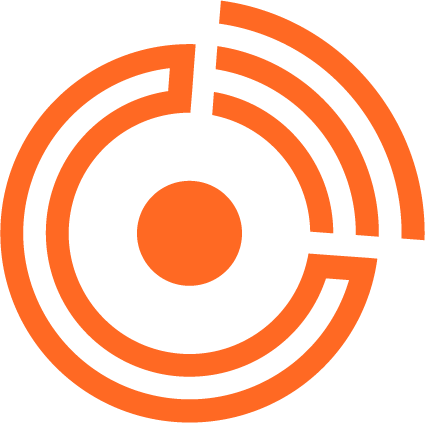7 Proven Strategies to Avoid Distractions When Working Remotely
Working remotely comes with its own set of unique challenges, particularly when it comes to staying focused and avoiding distractions. With the comfort and familiarity of your home environment, it can be all too easy to get sidetracked by everyday tasks, family members, or the lure of social media.
However, learning to manage these distractions is crucial for maintaining productivity and achieving a healthy work-life balance. This article will explore practical strategies to help you stay focused and minimize distractions while working remotely.
Identify Common Distractions
Before we go into the strategies for avoiding distractions, we must identify the most common culprits that can derail your focus. Some of the most frequent distractions remote workers face include:
- Social media and internet browsing
- Household chores and errands
- Family members and pets
- Television and streaming services
- Personal phone calls and text messages
- Snacking and meal preparation
Recognizing these potential distractions is the first step in developing a plan to minimize their impact on your work.
Read: Remote Work Vs. Traditional Office: Pros and Cons – Flexible Schedule or Set Routine?
Strategy #1: Create a Dedicated Workspace
One of the most effective ways to avoid distractions when working remotely is to create a dedicated workspace. Having a designated area for work helps to establish a clear boundary between your professional and personal life, making it easier to focus on your tasks.
When setting up your home office, consider the following tips:
- Choose a quiet, low-traffic area of your home
- Invest in a comfortable, ergonomic chair and desk
- Ensure your workspace has ample lighting and ventilation
- Minimize clutter and keep your workspace organized
- Use room dividers or noise-canceling headphones to reduce distractions
By creating a dedicated workspace that is conducive to productivity, you’ll be better equipped to avoid distractions and stay focused on your work.

Strategy #2: Establish a Routine and Set Boundaries
Another key strategy for avoiding distractions when working remotely is to establish a consistent daily routine and set clear boundaries with family and friends. Having a structured schedule helps to create a sense of normalcy and makes it easier to stay on track with your work.
Start by setting specific work hours and communicating them to your family and colleagues. Make sure to factor in breaks and lunch times to maintain a healthy balance. Stick to your schedule as much as possible, and resist the temptation to blur the lines between work and personal time.
When it comes to setting boundaries, be clear and upfront with your family and friends about your work hours and the importance of minimizing interruptions. Some tips for setting effective boundaries include:
- Communicate your work schedule and expectations clearly
- Establish a signal, such as a closed door or a “do not disturb” sign, to indicate when you’re working
- Set aside specific times for family interaction and personal tasks
- Politely but firmly remind others when you’re in work mode and cannot be interrupted
By establishing a routine and setting boundaries, you’ll create a more structured and focused work environment that helps you avoid distractions and maintain productivity.
Strategy #3: Use Time-Blocking and Task Prioritization
One of the most effective strategies for staying focused and avoiding distractions is to use time-blocking and task prioritization. Time-blocking involves dividing your day into dedicated time slots for specific tasks or activities. By allocating specific time periods to work on high-priority tasks, you can maintain focus and minimize the risk of getting sidetracked by less important activities.
To start time-blocking, follow these tips:
- Identify your most important tasks and prioritize them based on urgency and significance.
- Divide your day into blocks of time, assigning each block to a specific task or activity.
- Use a calendar or planner to schedule your time blocks, and treat them as non-negotiable appointments.
- During each time block, focus solely on the assigned task, avoiding multitasking or distractions.
- Include breaks between time blocks to avoid burnout and maintain productivity.
By using time-blocking and task prioritization, you can create a more structured and focused work environment that helps you stay on track and avoid distractions.
Read: 5 Things to Know Before Applying for a Remote Job
Strategy #4: Leverage Productivity Tools and Apps
In today’s digital age, there are numerous tools and apps available to help minimize distractions and enhance productivity. By leveraging these resources, you can create a more focused and efficient remote work experience.
Some examples of productivity tools and apps include:
- Website blockers: Apps like Freedom or Cold Turkey can block distracting websites and social media platforms during work hours.
- Time-tracking apps: Tools like RescueTime or Toggl can help you monitor how you spend your time and identify areas for improvement.
- Noise-canceling headphones: Investing in a high-quality pair of noise-canceling headphones can help minimize auditory distractions and improve focus.
- Task management apps: Platforms like Trello or Asana can help you organize and prioritize tasks, keeping you on track and minimizing the risk of getting sidetracked.
By experimenting with different productivity tools and apps, you can find the combination that works best for your specific needs and work style.
Strategy #5: Take Regular Breaks and Practice Mindfulness
 While it may seem counterintuitive, taking regular breaks is actually essential for maintaining focus and avoiding burnout. When you work for extended periods without breaks, your mind can become fatigued, making it harder to concentrate and increasing the risk of distractions.
While it may seem counterintuitive, taking regular breaks is actually essential for maintaining focus and avoiding burnout. When you work for extended periods without breaks, your mind can become fatigued, making it harder to concentrate and increasing the risk of distractions.
To avoid this, schedule regular breaks throughout your workday. Use this time to step away from your desk, stretch, or engage in a brief relaxation activity. Taking breaks can help refresh your mind and improve your overall productivity.
In addition to taking breaks, practicing mindfulness can also be a powerful tool for managing distractions and improving concentration. Mindfulness involves focusing your attention on the present moment and observing your thoughts and emotions without judgment. By incorporating mindfulness techniques into your workday, such as deep breathing or brief meditation sessions, you can train your mind to be more present and less susceptible to distractions.
Strategy #6: Communicate Effectively with Colleagues and Family
Effective communication is key to avoiding distractions when working remotely. It’s essential to clearly communicate your work hours and expectations to both colleagues and family members to minimize interruptions and maintain boundaries.
When communicating with colleagues, consider the following tips:
- Use status indicators on messaging platforms like Slack or Microsoft Teams to signal when you’re available or focusing on deep work.
- Schedule regular check-ins and meetings to stay connected and aligned on projects and deadlines.
- Establish clear guidelines for communication channels and response times to avoid constant interruptions.
When it comes to communicating with family members, try these strategies:
- Have an open conversation about your work schedule and the importance of minimizing interruptions during work hours.
- Set up a visual signal, such as a closed door or a “do not disturb” sign, to indicate when you’re in focused work mode.
- Create a family schedule that includes dedicated time for interaction and shared activities outside of work hours.
By communicating effectively with both colleagues and family members, you can create a more supportive and focused remote work environment.
Read: The Ultimate Guide to Acing Your Remote Job Interview
Strategy #7: Develop Self-Discipline and Motivation Techniques
Ultimately, avoiding distractions when working remotely requires a significant amount of self-discipline. It’s up to you to take control of your time and attention and to stay motivated and focused on your work.
To develop greater self-discipline, try these techniques:
- Set clear goals and deadlines for yourself, and hold yourself accountable for meeting them.
- Use positive self-talk and affirmations to stay motivated and focused.
- Create a rewards system for yourself, giving yourself small treats or breaks when you complete important tasks or reach milestones.
- Develop a growth mindset, viewing challenges and distractions as opportunities for learning and improvement.
In addition to these self-discipline techniques, it’s also important to find motivation strategies that work for you. Some effective motivation techniques include:
- Visualizing your long-term goals and the benefits of staying focused and productive.
- Surrounding yourself with positive and supportive people who encourage and inspire you.
- Celebrating your successes and progress, no matter how small.
- Maintaining a healthy work-life balance and engaging in hobbies and activities that bring you joy and fulfillment.
By developing strong self-discipline and finding effective motivation techniques, you can overcome distractions and achieve greater productivity and success in your remote work.


